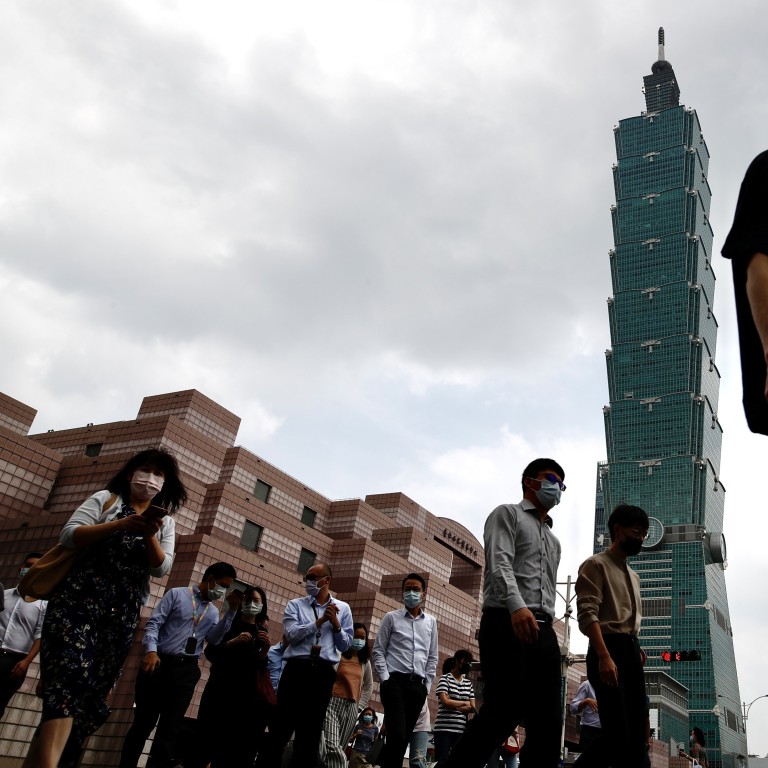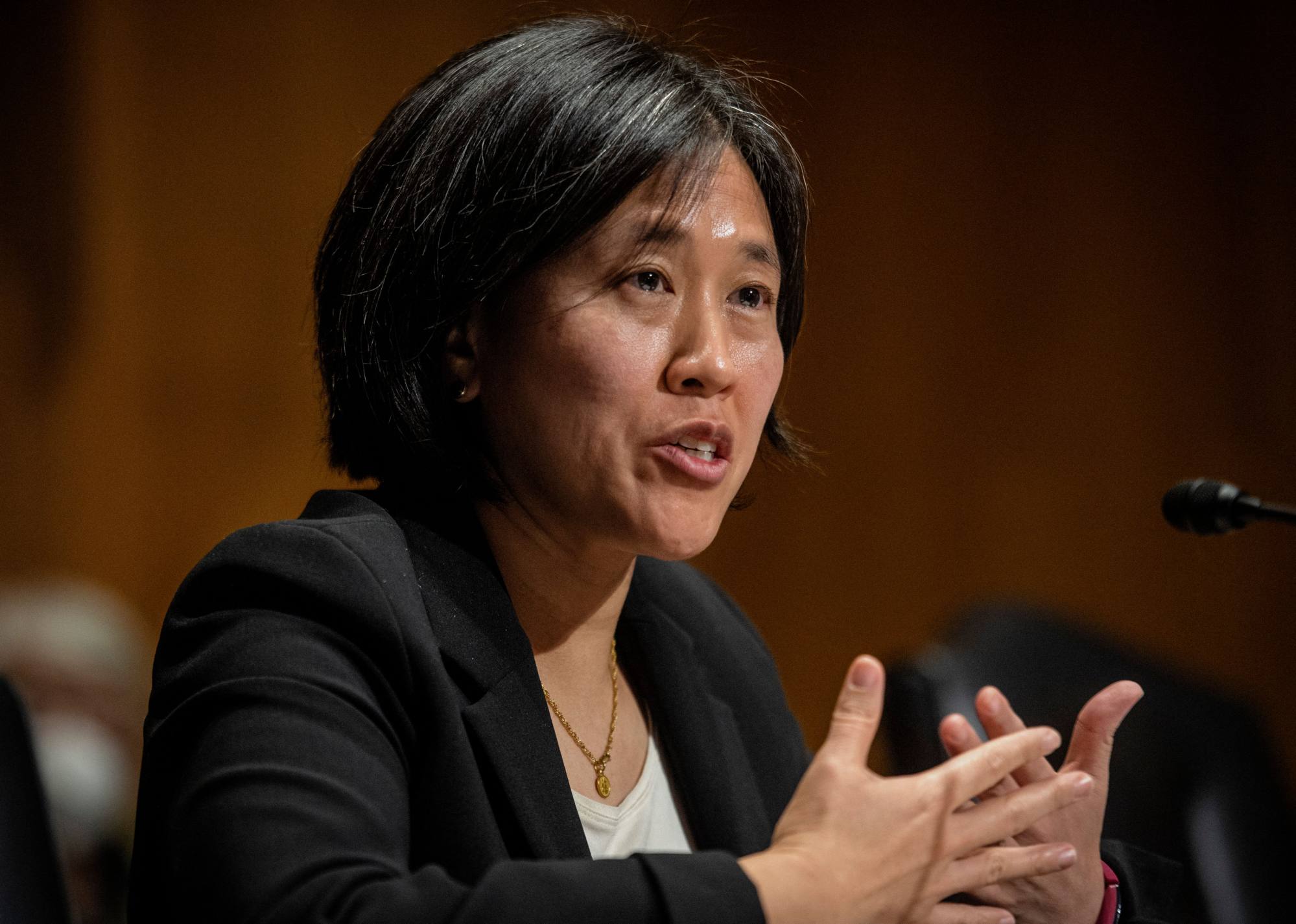
Joe Biden moves US closer to Taiwan, but how far is he willing to risk Beijing’s anger?
- The White House has followed a similar approach to the Trump administration by deepening its relationship with the island
- But observers say the US will be reluctant to push for normalised relations for fear of the response from mainland China
The White House has surprised some observers on the island by continuing Donald Trump’s policies of moving closer to Taipei, and this week it went a step further than the previous administration by agreeing to resume the Trade and Investment Framework Agreement (TIFA) talks in the “coming days”.
US trade representative Katherine Tai made the pledge on Thursday during a call with her Taiwanese counterpart John Deng and also said the White House was keen to work with Taiwan “on issues of common concern in multilateral organisations”.
In response, Deng said the island was fully committed to deepening trade ties with the US and promoting globalisation.
“As a reliable and trustworthy partner occupying an important position in the international supply chain, Taiwan looks forward to ongoing cooperation with the US and other economies,” he said.
Taiwan, which started the TIFA talks with the US in 1994, has long hoped to use the platform to negotiate a US-Taiwan trade deal.
US may have to keep China guessing over Taiwan, says former Nato commander
The talks stalled under the Trump administration due to his trade representative Robert Lighthizer’s view that Taiwanese blocks on US exports were unfair and his desire to focus on a deal with Beijing.
Tai’s commitment was seen by Taiwanese politicians as a significant indicator of the Biden administration’s strong support for the island and something that could lead to normalised ties – a move that some members of the US Congress have called for in recent years.
Washington switched diplomatic recognition to Beijing from Taipei in 1979 and has recognised the one-China policy at Beijing’s insistence.
But Ker Chien-ming, a legislator from the ruling Democratic Progressive Party, said US-Taiwan relations had been progressing steadily under Trump and Biden.
Lin Fei-fan, deputy secretary general of the independence-leaning DPP, said the resumption of dialogue was “highly significant in the development of Taiwan-US ties”.
“We look forward to an even better and deeper Taiwan-US relations,” he said in response to remarks by US Secretary of State Antony Blinken on Monday that two sides might soon resume talks.
Li Da-jung, a professor of international relations and strategic studies at Tamkang University in Taipei, said it was in the strategic interest of the Biden government to continue Trump’s policy of deepening relations with the island.
Beijing repeats offer of Covid-19 vaccines as Taiwan reports 287 new cases
Before Biden became president, there had been concerns among the Taiwanese public that he might reverse Trump’s policies towards the island.
It has also approved formal exchanges between officials of the two sides, and has twice sent envoys to the island, including the three senators, who flew to Taiwan on a US military transport plane for a three-hour stopover.
Li said these gestures, along with the approval of arms sales and vaccine donations, indicated how far the White House wants to go in maintaining ties with the island.
“But it remains to be seen if he will opt for normalised US-Taiwan ties as it would seriously provoke Beijing,” Li said, noting the administration has called several times for the resumption of meaningful dialogue between the mainland and the island.

Alexander Huang Chieh-cheng, a professor of international relations and strategic studies at Tamkang University, said senior officials in the US national security and China teams were clear that a strong and healthy Taiwan was essential to maintain the status quo across the Taiwan Strait and, ultimately, uphold US interests in the Indo-Pacific.
“To that end, they all believe that Washington should firmly stick to the US one-China policy and will not give the illusion that Taipei can overplay America’s goodwill and support for political symbolism,” he said.
“Resumption of the TIFA talks is politically important and reignites hopes for a bilateral free-trade agreement, especially after the four years of Trump’s tenure. The TIFA talks have never been an easy task and the White House will not soften its position on trade and commercial interests for better US-Taiwan relations,” Huang said.
Huang said the senators’ use of a military plane must have been approved by the White House, State Department and Pentagon, but said it was balanced by other factors such as the short time they spent on the island.
“Apparently it was a calculated move. Senators but not senior officials, short meetings at the airport with no office call, and the vaccine donation announcement all balanced the fact that a US Air Force plane landed in Taipei,” he said.


